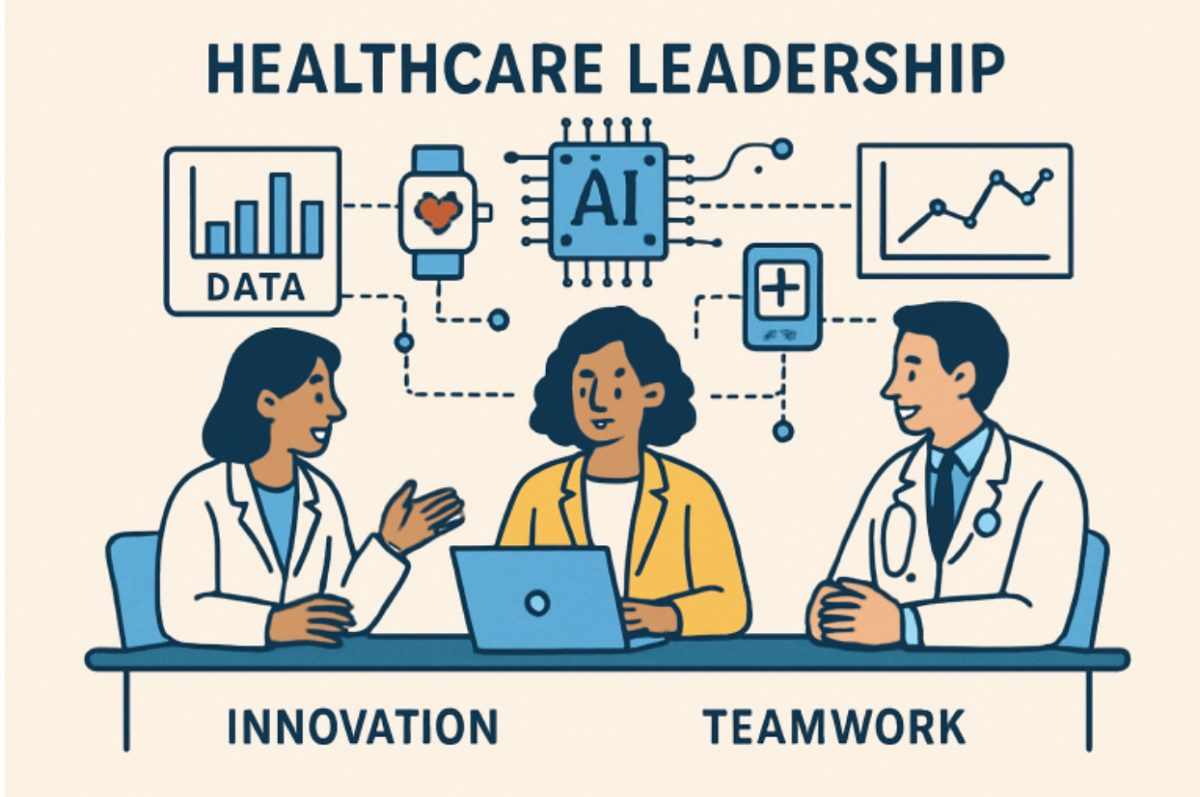Key Takeaways
- Healthcare leadership now encompasses roles in technology, data, and workforce strategy—far beyond traditional executive functions.
- Programs connecting military experience to civilian healthcare careers are enriching the field and addressing talent shortages.
- Artificial intelligence and data science are essential tools for modern healthcare leaders, enabling them to improve outcomes and enhance operational effectiveness.
Healthcare is undergoing a significant transformation, driven by the introduction of new technologies, evolving patient needs, and unprecedented workforce challenges that are reshaping the industry. Forward-thinking professionals are finding rewarding opportunities by stepping into leadership roles designed to harness innovation, anticipate operational demands, and guide organizations into the future. For those aspiring to lead this transformation, pursuing an advanced degree such as an MBA in healthcare management can provide a strategic advantage and equip future leaders with the essential skills to excel in the face of rapid change.
Today’s healthcare leadership goes beyond clinical skills, including digital initiatives, data-driven decisions, and emerging knowledge like quantum literacy. Institutions like Youngstown State University offer programs preparing leaders for these challenges. Opportunities for problem solvers grow at every level, in roles focused on workforce, technology, and specialized care, making continuous education essential. As workforce shortages and complexity increase, organizations need leaders who can innovate, adapt, and drive change, shaping the healthcare leaders of tomorrow.
Emerging Roles in Healthcare Leadership
Traditional executive roles in hospitals and health systems are evolving to include positions focused on technological innovation, workforce development, and patient-centered care. For example, organizations like Creative Solutions in Healthcare have established executive roles explicitly dedicated to data integration, connecting people and systems across all levels of care. These new roles reduce administrative burdens and streamline healthcare delivery—a critical step as complexity increases across the industry. Innovation in leadership ensures that healthcare remains adaptive and responsive to shifting patient needs and regulatory environments.
Bridging Military Experience and Healthcare
Veterans entering the civilian workforce bring invaluable discipline, leadership, and experience—qualities desperately needed in today’s healthcare environment. Innovative transition programs, such as the Mayo Clinic’s military medicine fellowship and initiatives at UW Health, help veterans translate their military healthcare training into in-demand roles. These programs provide not only hands-on experience but also necessary educational support, ranging from college credits for military service to new legislative initiatives enabling easier licensure for military-trained professionals. This transition is a win-win for both healthcare organizations facing workforce gaps and veterans seeking meaningful, mission-driven careers.
Leveraging Artificial Intelligence in Healthcare
Artificial intelligence (AI) is fast becoming indispensable for healthcare leaders seeking to improve outcomes and efficiency. Health systems, such as Aramark Healthcare+, leverage AI to expedite recruitment and reduce operational bottlenecks, shrinking hiring timelines from weeks to days. AI-powered documentation tools, such as those at WellBe Senior Medical, are revolutionizing patient care by capturing nuanced clinical information that can otherwise be overlooked. These advances free up clinical and administrative staff for higher-value work, reduce burnout, and create a more data-rich environment for decision-making. Leaders utilizing AI-driven insights are positioning their organizations at the forefront of efficiency and quality of care.
The Importance of Data Integration
Data integration is crucial for making informed, evidence-based decisions in healthcare. Leaders must navigate vast amounts of clinical and operational data, synthesizing findings to inform policy and care delivery. CEOs are highlighting how advanced AI-driven platforms can turn diverse data into actionable insights, saving time and supporting teams in delivering precise, timely patient care. Integrating disparate datasets enables leaders to identify trends, optimize practices, and respond rapidly to emerging healthcare challenges. Reliable data systems are now a non-negotiable core of modern healthcare leadership and organizational resilience.
Educational Pathways for Aspiring Leaders
To fill new leadership gaps, universities and edtech companies are developing flexible educational programs tailored to the needs of healthcare. Collaborations enable aspiring healthcare leaders to advance their education while working in the field. From undergraduate to graduate degrees, these programs focus on vital competencies such as administration, technology integration, and strategic thinking, ensuring that graduates are prepared for the complexities ahead. In addition to traditional degrees, micro-credentials and short courses in digital health, AI, and data analytics are becoming popular entry points into leadership roles for busy professionals.
Building a Quantum Literate Workforce
Quantum technology’s potential to transform healthcare may seem futuristic, but its integration into fields such as epidemiology, diagnostics, and informatics is already underway. Building a quantum-literate workforce is crucial for the next generation of leaders to interpret and leverage data derived from quantum technologies. Currently, public health severely lacks practitioners trained in quantum principles—a gap that educational institutions must urgently address. Bringing quantum readiness to healthcare will fuel breakthroughs in disease surveillance and patient analytics, amplifying the power and precision of public health interventions.
The Role of Chief Innovation Officers
Chief Innovation Officers (CIOs) are emerging as the visionaries behind organizational change in healthcare. These leaders drive the identification, piloting, and scaling of new technologies—whether telemedicine, remote monitoring, or advanced clinical workflows—while building partnerships that extend care beyond traditional boundaries. CIOs have a front-row seat to healthcare’s transformation and are increasingly influential in shaping policy, culture, and business models to meet the demands of 21st-century health challenges. Their work is vital as health systems seek to balance innovation with regulatory compliance and patient safety.
Conclusion
The future of healthcare leadership will be defined by those who embrace continuous learning, adaptability, and innovation. Leaders adept in integrating technology, developing data-driven strategies, and fostering future-focused education will not only advance their organizations but also make a significant impact on public health. For healthcare professionals ready to lead the way, now is the perfect time to invest in the skills and knowledge that will shape tomorrow’s healthcare landscape.
